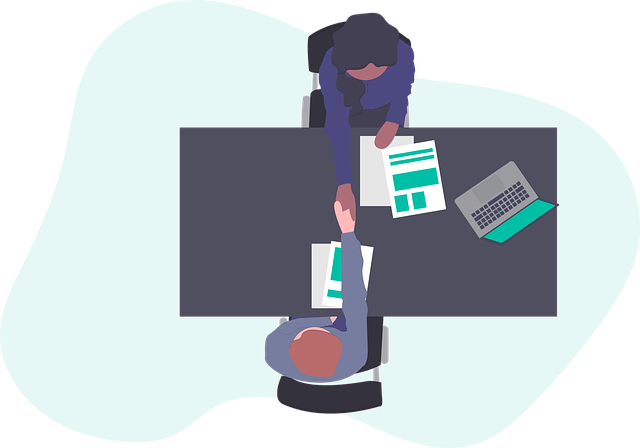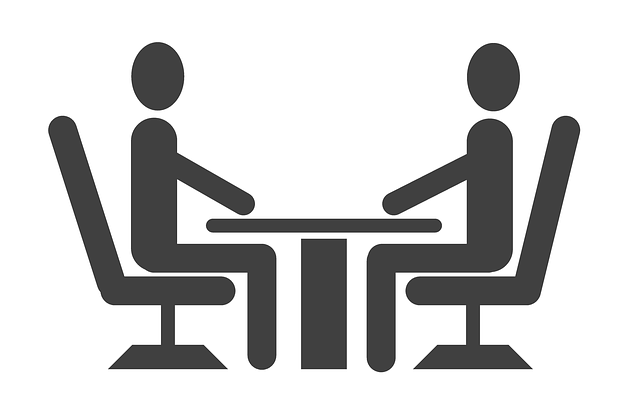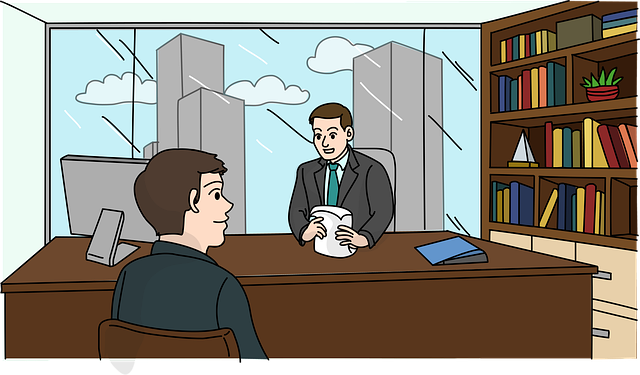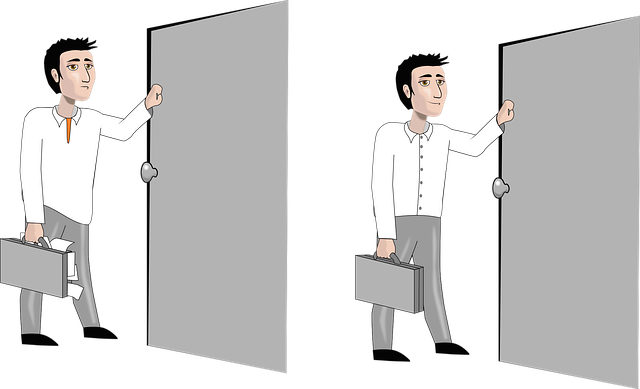Gearing up for a job interview and wondering what common interview questions might come your way? Preparing for job interview questions can be challenging, but with the right approach, you can turn the experience into a chance for professional development and self-improvement. Whether you’re applying for a position in a collaborative environment or aiming for a leadership role, knowing how to answer situational interview questions can make a difference. So, let’s dive into some of the most frequently asked interview questions and explore how to answer them effectively!
Most Common Job Interview Questions and Answers

Question 1: “Can you tell me about yourself?”
This classic open-ended question is often the first in an interview, setting the tone for the rest of the conversation.
When answering, focus on your professional background and how it aligns with the job description. Highlight your most relevant experiences, skills, and accomplishments, tying them to the company’s values and vision. Avoid delving into personal details unless they directly relate to the job.
For example, if you’re applying for a project manager position, mention your experience with project management software and leading team projects. Keep it concise and tailored to the role, showcasing your genuine interest and readiness to contribute.
Question 2: “What are your strengths and weaknesses?”
This question aims to gauge your self-awareness and honesty. For strengths, choose qualities that align with the job ad and the company’s culture, such as strong communication skills or analytical abilities. Provide specific examples of how you’ve demonstrated these strengths in your previous job or past projects. When discussing weaknesses, be honest but strategic.
Mention a real area for improvement but follow up with how you’re actively working on it. For instance, if public speaking is a challenge, you could share how you’ve been taking courses to improve this skill, showing your commitment to personal growth.
Question 3: “Describe a time you faced a challenging situation at work and how you handled it.”
This is a common situational job interview question designed to assess your problem-solving abilities and composure under pressure. Use the STAR method (Situation, Task, Action, Result) to structure your answer.
Describe a specific instance, such as managing a major project with tight deadlines, and outline the steps you took to resolve the issue. Emphasize the positive outcome, such as achieving project goals or improving team collaboration. This approach demonstrates your ability to handle stressful situations and your capacity for critical thinking.
Question 4: “Where do you see yourself in five years?”
Hiring managers ask this question to understand your career goals and whether they align with the company’s long-term vision. Be honest about your aspirations, but also express your interest in growing within the company.
For example, if you’re interviewing for a software developer role, you might say you hope to advance to a senior developer position or explore project management opportunities. This shows that you’re looking for a career path rather than just a job. Avoid mentioning desires unrelated to the position or company, as it may raise concerns about your commitment.
Question 5: “What is your greatest professional achievement?”
This question gives you a chance to showcase your accomplishments and the impact you’ve made in your previous job.
Choose a specific achievement relevant to the position you’re applying for. Use concrete numbers or outcomes to illustrate your success, such as increasing sales by a certain percentage or successfully leading a team project.
escribe the context, your role, and the steps you took to achieve this success. Highlighting your achievements not only demonstrates your skills but also your potential to bring value to the prospective employer.
Question 6: “How do you handle pressure or stressful situations?”
This question aims to understand how you manage stress and maintain productivity in challenging circumstances.
To provide a strong answer, describe a specific situation where you were under pressure, the steps you took to handle it, and the positive outcome. For instance, you might discuss a time when a major project faced tight deadlines, and you had to use your analytical skills and efficient time management to meet the goals.
Emphasize your ability to stay calm, focused, and solution-oriented, showcasing your work ethic and resilience.
Question 7: “Can you give an example of a time you worked on a team?”
Hiring managers often use this question to assess your teamwork and collaboration skills. Share a specific instance from your current company or last job where you worked closely with a team.
Highlight your role, the team’s objective, and the outcome. For example, you might describe working on a sales team project where you coordinated efforts to improve customer outreach.
Focus on how you contributed as a team player, communicated effectively, and supported your team members, showcasing your ability to thrive in a collaborative work environment.
Question 8: “What do you know about our company?”
This question tests your preparation and interest in the potential employer. Before the interview, research the company’s reputation, values, and recent news.
When answering, mention specific aspects of the company that appeal to you, such as its innovative products, commitment to social responsibility, or positive company culture. This shows that you’re not just job hunting but are genuinely interested in joining the organization.
Avoid vague or generic statements, as they can be seen as a lack of preparation or genuine interest.

Question 9: “What are your salary expectations?”
Discussing salary can be tricky, but it’s an important part of the hiring process. Research the market rate for the position and consider your experience level and the cost of living in the area.
When answering, provide a range rather than a specific number, stating that you are open to negotiation. For example, “Based on my research and experience, I’m looking for a salary in the range of $X to $Y, but I’m open to discussing it further based on the overall compensation package.”
This approach shows you’re flexible and realistic about your expectations.
Question 10: “Can you describe a time when you had to learn a new skill for your job?”
Employers value candidates who are adaptable and eager to grow. For this question, share a specific example of when you acquired a new skill that benefitted your work.
Perhaps you learned a new project management software or developed data analysis skills for a major project. Explain why the skill was necessary, how you learned it, and how it positively impacted your performance.
Highlighting your willingness to learn and adapt demonstrates your commitment to continuous professional development and your value to the company.
Question 11: “How do you prioritize your work?”
This question assesses your organizational and time-management skills. To answer, describe your approach to prioritizing tasks, especially when juggling multiple responsibilities.
You might discuss using project management tools to keep track of deadlines and set priorities based on urgency and importance. For example, you can explain how you prioritize tasks by aligning them with the company’s vision and goals, ensuring that critical tasks are completed first.
This demonstrates your ability to manage your work effectively and maintain productivity, even in a fast-paced environment.
Question 12: “Tell me about a time you had a disagreement with a coworker. How did you handle it?”
This behavioral interview question is designed to assess your conflict resolution and communication skills. Provide a specific example where you faced a disagreement in your last job.
Focus on how you addressed the issue calmly and professionally, listening to the other person’s perspective and finding a mutually agreeable solution. For instance, you might describe a situation where you and a team member had different approaches to a project, and you worked together to combine your ideas.
Emphasize your ability to maintain positive working relationships and navigate conflicts constructively.
Question 13: “What is your preferred work style?”
Interviewers ask this question to see if your work style aligns with the company’s culture and the role’s requirements. Be honest about your preferences while considering the nature of the job.
For example, if the position requires independent work, mention your ability to work autonomously and take initiative. If it’s a collaborative role, emphasize your enjoyment of teamwork and open communication.
Highlighting your adaptability and willingness to work in various environments can also be beneficial, showing you’re flexible and can thrive in different settings.
Question 14: “How do you stay motivated at work?”
This question explores your intrinsic motivation and work ethic. Discuss what drives you professionally, such as achieving goals, continuous learning, or contributing to meaningful projects.
Provide examples of how you maintain motivation, such as setting personal milestones or seeking feedback for improvement. For instance, you could mention how working on challenging projects in your current company keeps you engaged and excited.
Emphasizing your proactive approach to staying motivated can assure the hiring manager that you’ll remain committed and productive.
Question 15: “Why are you leaving your current job?”
This question helps interviewers understand your career trajectory and what you’re looking for in your next position. Keep your answer positive and focused on your future goals. Avoid speaking negatively about your current company or colleagues.
Instead, you could say, “I’m looking for new challenges and opportunities to grow my skills, which I believe this position offers.” If you’re seeking a change in work environment, you can mention your interest in a company’s specific culture or values. This approach shows that you’re forward-thinking and seeking personal and professional growth.

Question 16: “Can you describe a time when you led a team?”
This question is particularly relevant for those applying for leadership roles or project manager positions. To answer, provide a specific example where you successfully led a team, focusing on your management style and the results achieved.
Describe the project, your leadership approach, and how you motivated team members. For example, you might talk about how you delegated tasks based on individual strengths and encouraged open communication.
Highlighting the positive outcome, such as completing a major project ahead of schedule, demonstrates your leadership skills and ability to achieve team goals.
Question 17: “How do you handle constructive criticism?”
This behavioral interview question assesses your self-awareness and openness to feedback. The best answer involves acknowledging the importance of constructive criticism for personal and professional growth. Share a specific instance from your last company where you received constructive feedback and how you used it to improve.
For example, you could discuss a time when feedback on your presentation skills led you to seek out additional training. Emphasize your willingness to learn and adapt, showing that you view criticism as an opportunity for self-improvement.
Question 18: “What do you consider to be your greatest weakness?”
This common job interview question tests your honesty and self-awareness. Avoid giving a “wrong answer” like “I’m a perfectionist,” which can seem disingenuous.
Instead, choose a real weakness, but frame it in a way that shows you’re actively working to improve. For instance, you could say, “I used to struggle with delegating tasks because I wanted to ensure everything was perfect. However, I’ve learned to trust my team members and delegate more effectively, which has improved our productivity.”
This response shows you recognize your weaknesses and are committed to personal growth.
Question 19: “Describe a time when you had to adapt to a significant change at work.”
Situational job interview questions like this one assess your adaptability and resilience. Share a specific example where you faced a major change, such as a company reorganization or a shift in project priorities.
Describe how you adapted to the change, focusing on your positive attitude and proactive approach. For example, you could talk about how you quickly learned new skills or adjusted your workflow to align with the new direction. Highlighting your flexibility and ability to thrive in changing environments can reassure potential employers of your adaptability.
Question 20: “What motivates you to perform well?”
This question explores your intrinsic motivation and what drives you in your career. When answering, consider what truly inspires you, whether it’s achieving professional success, learning new skills, or contributing to meaningful projects.
For instance, you might say, “I’m motivated by the opportunity to solve complex problems and see the tangible results of my work. Being able to innovate and improve processes in my role is very rewarding.” This response provides insight into your personal preferences and demonstrates that you’re driven by more than just external rewards.
Question 21: “How do you prioritize tasks when you have multiple deadlines?”
For project managers and roles that require strong organizational skills, this question is crucial. Explain your approach to managing time and prioritizing tasks.
A sample answer might include discussing how you assess the urgency and importance of each task, create a timeline, and communicate with stakeholders to manage expectations. Mention tools or methods you use, such as project management software or to-do lists.
By showcasing your ability to prioritize effectively, you demonstrate your capacity to handle multiple responsibilities and meet deadlines.
Question 22: “Why do you want to work here?”
This is one of the most common job interview questions and is an opportunity to express your enthusiasm for the position and the company.
Research the company’s reputation, values, and the specific role. Your answer should reflect your understanding of what the company offers and how it aligns with your career goals. For example, you could say, “I’m impressed by your company’s commitment to innovation and sustainability, which aligns with my passion for environmental stewardship.
I believe my skills and experience can contribute to your mission, and I’m excited about the opportunity to grow within this dynamic team.” This shows you’re genuinely interested in the new position and have done your homework.

Question 23: “How do you define success?”
This question gives insight into your personal values and how you measure achievements. When answering, consider both professional and personal aspects.
You might say, “I define success as achieving a balance between delivering high-quality work and continuously growing as a professional. Success means meeting or exceeding project goals while also gaining new skills and contributing positively to my team.”
This response indicates that you value not only the outcome of your work but also the process and personal development.
Question 24: “What skills are you currently working on to improve?”
This question assesses your commitment to continuous learning and self-improvement. Be honest about the skills you’re developing and how they relate to the job you’re applying for.
For example, you might say, “I’m currently working on improving my data analysis skills to better interpret complex data sets and make informed decisions. I’ve been taking online courses and practicing with real-world data to enhance my abilities.”
This answer shows that you’re proactive about your professional development and eager to bring new skills to your next job.
Question 25: “Can you tell me about a time you volunteered or participated in community service?”
Interviewers may ask this to gauge your commitment to social responsibility and community involvement. Share a specific example of volunteer work or community service, describing your role and the impact of your efforts.
For instance, you could mention volunteering at a local shelter, organizing charity events, or mentoring students. Highlight how these experiences have enriched your life and contributed to your personal and professional growth.
This response can illustrate your well-rounded character and alignment with the company’s values if they emphasize corporate social responsibility.
Question 26: “Can you tell me about a time you failed at a task?”
This behavioral interview question tests your self-awareness and ability to learn from mistakes. To answer, choose an instance where you faced a significant challenge or made a mistake. Describe the situation honestly, focusing on what went wrong and why.
Then, highlight what you learned from the experience and how it has helped you improve. For example, you might say, “I once underestimated the scope of a major project and missed some key deadlines. However, this taught me the importance of thorough planning and setting realistic expectations.
Since then, I’ve implemented more rigorous project management practices.” This response shows your ability to grow from setbacks and apply lessons learned.
Question 27: “How do you balance work and family commitments?”
While it’s generally considered inappropriate for employers to ask directly about family status, you can still be asked how you manage work-life balance. When answering, focus on your organizational skills and ability to prioritize.
For instance, “I believe in setting clear boundaries and maintaining open communication with my family and colleagues. I prioritize my tasks and make use of flexible work arrangements when necessary. This helps me stay productive at work while also being present for my family.”
This answer demonstrates your ability to manage responsibilities effectively without revealing too much personal information.
Question 28: “Describe a time when you had to quickly adapt to a new work environment.”
This question assesses your adaptability and resilience. Share a specific instance where you had to adjust to a new work environment, such as starting at a new company or taking on a different role.
Describe the challenges you faced, such as unfamiliar workflows or new team dynamics, and how you overcame them. For example, you might discuss how you quickly learned the company’s processes and integrated into a new team by actively seeking feedback and participating in team activities.
This response highlights your flexibility and willingness to embrace change.
Question 29: “What is your dream job?”
This question helps interviewers understand your long-term career aspirations and whether they align with the position you’re applying for. Be honest but also tactful.
You might say, “My dream job involves a role where I can continuously learn and take on new challenges, ideally in a company that values innovation and personal growth. I’m passionate about [specific industry or skill], and I see myself developing my expertise in this area while contributing to impactful projects.”
This answer shows that you have clear career goals and that the current role could be a stepping stone towards achieving them.

Question 30: “Tell me about a major project you managed.”
For candidates in project management or similar roles, this question is crucial. Choose a project that had a significant impact and was relevant to the job you’re applying for. Describe the project’s scope, your role, the challenges faced, and the results achieved.
For example, “I led a major software implementation project that involved coordinating a cross-functional team of 20 members. Despite tight deadlines and a few technical setbacks, we successfully launched the product on time, resulting in a 30% increase in efficiency for our client.”
Highlighting your leadership and problem-solving skills will demonstrate your capability to manage complex projects.
Question 31: “What have you learned from your previous job?”
This question allows you to reflect on your past experiences and what they’ve taught you. Focus on both hard and soft skills, such as technical expertise and interpersonal abilities.
For example, “In my previous job, I learned the importance of effective communication and teamwork. Working closely with diverse teams taught me how to adapt my communication style to different audiences, which improved our collaboration and project outcomes.
I also gained valuable technical skills in [specific area], which I’m excited to bring to this new position.” This answer shows that you’re self-aware and value the lessons from past experiences.
Question 32: “How do you handle receiving wrong answers or misinformation from colleagues?”
This question tests your problem-solving and communication skills. Describe a situation where you received incorrect information and how you handled it professionally.
For instance, “In a previous project, I received incorrect data from a colleague, which could have affected our project outcomes. I approached the situation calmly, double-checked the information, and then had a respectful conversation with the colleague to clarify the details.
We worked together to correct the mistake and implemented a process to ensure accurate data sharing in the future.” This response shows your ability to address issues tactfully and work towards a solution.
Question 33: “How do you approach setting goals for yourself?”
This question explores your goal-setting and motivation strategies. Discuss how you set both short-term and long-term goals, ensuring they are specific, measurable, and achievable. For example, “I use a mix of SMART goals and regular self-assessment to set and track my objectives.
For major projects, I break them down into smaller tasks and set deadlines for each. I also set personal development goals, such as learning a new skill every quarter.
This approach helps me stay focused and continuously improve.” This response indicates that you’re proactive and structured in achieving your career objectives.
Question 34: “Can you describe a situation where you had to work with a difficult team member?”
This behavioral question evaluates your interpersonal and conflict resolution skills. Share a specific example, focusing on how you handled the situation constructively. For instance, “In one of my previous teams, I had a colleague who was often critical of others’ ideas, which created tension.
I decided to address it by having a one-on-one conversation with them to understand their perspective and express how their behavior was affecting the team.
We agreed to focus on constructive feedback and open communication. Over time, our team dynamic improved, and we became more collaborative.” This answer shows your ability to handle difficult situations diplomatically.
Question 35: “What do you consider your greatest achievement outside of work?”
This question gives you a chance to share more about your personal life and values. Choose an achievement that reflects positively on your character and skills. For example, “One of my greatest achievements outside of work was organizing a successful charity event that raised significant funds for a local non-profit.
It involved coordinating with volunteers, managing logistics, and marketing the event. The experience taught me valuable lessons in leadership and community engagement.” This response showcases your initiative, organizational skills, and commitment to making a positive impact, both professionally and personally.
Question 36: “Can you tell me about a time you had to learn a new technology or tool for your job?”
This behavioral interview question assesses your adaptability and willingness to learn. Use the STAR method to structure your answer: describe the Situation, Task, Action, and Result. For example, “In my previous job, we transitioned to a new project management software that I wasn’t familiar with.
The team had a tight deadline, so I quickly took the initiative to complete online tutorials and sought help from a colleague who had experience with the tool. Within a week, I was proficient enough to manage my tasks efficiently, which helped the team stay on track. This experience underscored the importance of being adaptable and proactive in learning new skills.”

Question 37: “How do you handle unexpected changes in a project?”
Hiring managers ask this to gauge your flexibility and problem-solving skills. A good sample answer might be: “In project management, unexpected changes are inevitable. I handle them by staying calm and assessing the situation quickly.
For instance, in a major project at my previous job, a key deliverable was delayed due to unforeseen supplier issues. I immediately convened a meeting with the team, reassessed our timeline, and reallocated resources to minimize the impact. We also communicated transparently with the client, providing revised expectations.
This approach helped us navigate the situation smoothly and maintain the client’s trust.”
Question 38: “How do you ensure that you understand the job description and expectations for a role?”
This question assesses your thoroughness and communication skills. A good approach to answering is: “Before applying for any position, I carefully review the job description and research the company’s reputation and culture.
During the interview process, I ask clarifying questions about the specific responsibilities and performance expectations. For example, in my last interview, I inquired about the key performance indicators (KPIs) and the company’s preferred management style.
This helped me ensure my skills aligned with the role and showed my genuine interest in understanding the job thoroughly.”
Question 39: “Can you provide an example of a professional achievement you’re proud of?”
This interview question allows you to showcase a significant accomplishment. Use a specific example relevant to the job you’re applying for.
For instance, “One of my proudest professional achievements was leading a cross-functional team to successfully launch a new product line. I managed the project from concept to launch, coordinating with marketing, sales, and R&D.
The project was completed two weeks ahead of schedule and exceeded initial sales forecasts by 20%. This achievement demonstrated my ability to manage complex projects and work collaboratively across departments.”
Question 40: “How do you typically handle salary negotiations?”
This question explores your approach to discussing compensation. A balanced answer might be: “I approach salary negotiations with a well-researched understanding of market rates for the position and my own value based on experience and skills.
I aim for a fair and competitive salary that reflects the job’s responsibilities and the company’s budget. I always express my appreciation for the offer and approach the conversation as a collaborative discussion.
For instance, in my previous job offer, I used my research to explain why I believed a slightly higher salary was justified, which was ultimately agreed upon.”
Question 41: “Describe a situation where you demonstrated strong teamwork skills.”
This behavioral question evaluates your ability to work well with others. A strong answer could be: “In my previous job, I was part of a team tasked with developing a new marketing campaign. We had diverse perspectives, which initially led to conflicting ideas.
I took the initiative to organize a brainstorming session where everyone could voice their ideas openly. By facilitating open communication and encouraging mutual respect, we combined our strengths to create a campaign that increased customer engagement by 30%.
This experience taught me the value of being a supportive team player and leveraging diverse viewpoints.”

Question 42: “How do you keep up with industry trends and developments?”
This question assesses your commitment to ongoing professional growth and staying current in your field. A good sample answer is: “I stay updated on industry trends by regularly reading relevant publications, attending webinars and industry conferences, and participating in online forums.
For example, I subscribe to newsletters from leading industry analysts and follow thought leaders on social media. This not only keeps me informed but also provides new ideas and strategies that I can apply to my work.
Continuous learning is a priority for me, and I’m always looking for opportunities to acquire new skills.”
Question 43: “What management style do you prefer to work under?”
This question helps the hiring manager understand your compatibility with the company’s leadership. Your answer should reflect your personal preferences and how they align with the company’s culture.
For instance, “I thrive under a collaborative and supportive management style where open communication and feedback are encouraged. I appreciate managers who provide clear goals and autonomy in how to achieve them, as it fosters creativity and personal growth. At the same time, I value a manager who is available for guidance and mentorship when needed.
This approach aligns with my desire for a balanced work environment where I can contribute and grow.”
Question 44: “Can you describe a time when you had to persuade someone to accept your point of view?”
This question examines your persuasive skills and ability to handle conflict. A structured answer might be: “In a previous role, I had to convince a senior colleague to adopt a new project management software that I believed would improve efficiency.
They were initially resistant due to familiarity with the existing system. I prepared a detailed presentation comparing the features and benefits of both tools, highlighting how the new software could save time and reduce errors. I also suggested a trial period to demonstrate its effectiveness.
My colleague appreciated the data-driven approach and agreed to the trial, which eventually led to a full implementation.”
Question 45: “How do you assess whether a potential employer’s company culture is a good fit for you?”
This question assesses your self-awareness and research skills. A thoughtful answer could be: “I start by researching the company’s values, mission statement, and reputation.
I look at employee reviews on sites like Glassdoor and seek out insights from current or former employees, if possible. During the interview process, I ask questions about the company’s culture, such as how they handle conflict, support work-life balance, and promote professional growth.
I also pay attention to the interviewers’ communication styles and the general atmosphere during my visit. These factors help me determine if the company’s culture aligns with my personal and professional values.”
Question 46: “How do you prioritize and manage multiple tasks in a project?”
This question evaluates your organizational and time-management skills. A solid sample answer might be: “In my previous job, I often handled multiple projects simultaneously. I prioritize tasks based on urgency and importance, using project management software to track deadlines and progress.
For instance, I break down major tasks into smaller, manageable steps and assign deadlines for each. I also communicate regularly with team members to ensure alignment and adjust priorities as needed. This approach helps me stay organized and ensure that all tasks are completed efficiently and on time.”
Question 47: “How do you contribute to a positive company culture?”
This question assesses your understanding of and contribution to workplace culture. A good answer could be: “I believe that a positive company culture is built on respect, open communication, and collaboration.
In my previous job, I actively participated in team-building activities and always made an effort to acknowledge colleagues’ achievements. I also maintain a positive attitude and encourage constructive feedback, which helps create an inclusive and supportive work environment.
By being approachable and proactive in helping others, I contribute to a culture where everyone feels valued and motivated.”

Question 48: “What communication skills do you find most important for this role?”
This question helps hiring managers gauge your understanding of the role’s communication demands. A comprehensive answer might include: “For this role, effective communication is crucial, both written and verbal.
Clear and concise writing is essential for documentation and reporting, while strong verbal communication is vital for meetings and presentations. Active listening is equally important, as it ensures that I understand the needs and concerns of team members and stakeholders.
Additionally, adapting my communication style to different audiences, whether technical or non-technical, helps ensure that information is accurately conveyed and understood.”
Question 49: “Can you describe a situation where you had to collaborate with a difficult team member?”
This behavioral interview question explores your conflict resolution and teamwork skills. A thoughtful response might be: “In my previous job, I worked with a team member who was resistant to new ideas.
To address this, I initiated a one-on-one conversation to understand their concerns and perspective. I also made an effort to involve them more in brainstorming sessions, allowing them to express their ideas and contribute to the discussion.
By actively listening and validating their input, we eventually found common ground and were able to collaborate more effectively. This experience taught me the importance of empathy and open communication in overcoming interpersonal challenges.”
Question 50: “What is one professional achievement you’re particularly proud of?”
This question allows you to highlight a specific accomplishment. Use the STAR method to structure your answer: “In my previous job, I led a project to streamline our inventory management system. The task was to reduce waste and improve efficiency.
I implemented a new software solution and trained the team on its use. As a result, we reduced inventory discrepancies by 30% and saved the company significant costs.
This achievement demonstrated my ability to lead major projects and drive measurable improvements, and it remains one of my proudest professional accomplishments.”
Question 51: “How do you handle salary expectations during the interview process?”
This question assesses your negotiation skills and understanding of compensation. A good response might be: “I handle salary discussions by first researching the market rate for the position and considering my own experience and skills.
During the interview process, I focus on understanding the full compensation package, including benefits and growth opportunities. When the time comes to discuss salary, I express my appreciation for the offer and present a well-reasoned range based on my research and expectations.
I aim for a respectful and open negotiation, emphasizing my desire for a fair compensation that reflects the role’s responsibilities and my qualifications.”
Question 52: “How do you demonstrate genuine interest in a company’s mission and values?”
This question examines your alignment with the company’s ethos. A suitable answer could be: “To demonstrate genuine interest, I thoroughly research the company’s mission, values, and recent initiatives before the interview.
I reference specific aspects of the company’s work that resonate with me, such as their commitment to sustainability or innovation. During the interview, I ask thoughtful questions about how these values are implemented in daily operations and the company’s long-term goals.
By aligning my personal values with the company’s mission, I show that I’m not just interested in the job but also in contributing positively to the company’s overall vision.”
Question 53: “How do you handle learning new skills on the job?”
This question focuses on your adaptability and eagerness to learn. A well-rounded answer might be: “I’m proactive about acquiring new skills, whether through formal training, online courses, or on-the-job experience.
In my previous job, I needed to learn a new analytics tool to better interpret data for our marketing campaigns. I quickly enrolled in an online course and dedicated time each day to practice. Additionally, I sought advice from colleagues who were proficient in the tool.
This approach helped me become competent in a short time and allowed me to contribute more effectively to the team.”

Question 54: “What do you consider your work style, and how does it align with this position?”
This question explores your self-awareness and suitability for the role. A thoughtful answer could include: “I consider my work style to be organized and collaborative.
I enjoy setting clear goals and breaking down tasks into manageable steps. I’m comfortable working independently but also thrive in team settings where communication and collaboration are key.
For instance, in my previous job, I often led cross-functional teams and coordinated with different departments to achieve project goals. This aligns well with the collaborative nature of this position, where working closely with various teams and stakeholders is essential.”
Question 55: “Can you describe a time when you had to use the same approach to solve different problems?”
This question assesses your problem-solving skills and versatility.
An effective answer might be: “In my previous job, I frequently encountered issues with data consistency in our reporting. I developed a standard process for data validation that involved cross-checking data sources and using specific software tools to identify discrepancies.
This approach proved effective across different projects and departments, whether we were analyzing sales data or customer feedback. By applying this same method, I was able to ensure accuracy and reliability in our reports, regardless of the data’s origin. This experience taught me the value of having a systematic approach to problem-solving.”
Question 56: “Can you describe a time when you had to work under a tight deadline?”
This behavioral interview question assesses your ability to manage time and stress. A strong answer could be: “In my previous role, we had an unexpected client request that required a full campaign proposal within 48 hours.
I quickly organized a team meeting to delegate tasks, prioritizing the most critical elements of the proposal. I stayed focused and worked long hours alongside my team, ensuring we met all requirements. We delivered the proposal on time, impressing the client and securing the project.
This experience taught me the importance of efficient time management and effective teamwork under pressure.”
Question 57: “Tell me about a time when you had to make a difficult decision.”
This question aims to understand your decision-making process and ability to handle tough situations. A good sample answer might be: “In a previous position, I had to decide whether to continue a project that was over budget and behind schedule or to recommend its cancellation.
After analyzing the potential costs and benefits and consulting with key stakeholders, I determined that continuing would not yield the desired results. I recommended reallocating resources to more viable projects, which was a difficult conversation to have.
Ultimately, the decision saved the company money and allowed us to focus on more profitable initiatives.”
Question 58: “Describe a situation where you had to work with limited resources.”
This question evaluates your resourcefulness and creativity. An effective answer could be: “During a major project at my previous job, our budget was unexpectedly cut by 20%.
I had to quickly reassess our plan and find cost-effective solutions without compromising quality. I negotiated better rates with suppliers, streamlined some processes, and utilized in-house resources more efficiently.
By reallocating tasks and prioritizing essential activities, we completed the project on time and under the revised budget. This situation taught me the importance of adaptability and innovative thinking in overcoming challenges.”
Question 59: “How have you handled a situation where you disagreed with a coworker?”
This question explores your conflict resolution skills. A balanced answer might be: “At my previous job, I disagreed with a coworker about the best approach to a marketing strategy. I suggested we schedule a meeting to discuss our perspectives openly.
During the meeting, I listened carefully to their concerns and explained my viewpoint with supporting data. We found common ground by combining elements of both our strategies, leading to a more comprehensive plan.
This experience reinforced the value of open communication and compromise in resolving disagreements.”
Question 60: “Can you give an example of a time you motivated your team?”
This question assesses your leadership and motivational skills. A suitable answer could include: “In a previous role, our team was struggling with low morale due to a series of challenging projects.
I decided to organize a team-building activity and personally acknowledged each member’s contributions during meetings. I also set up a reward system for reaching milestones. These efforts helped improve the team’s morale and motivation, resulting in increased productivity and a successful project completion.
This experience taught me that recognition and a positive work environment are key to motivating a team.”

Question 61: “Describe a time when you had to adapt your communication style to suit a different audience.”
This behavioral question tests your adaptability and communication skills. A good answer might be: “In my previous role, I often presented technical data to both technical and non-technical audiences.
For a project update meeting, I had to present to both the engineering team and senior management. I prepared two sets of slides: one with technical details for the engineers and another with high-level summaries and key takeaways for the executives.
By tailoring my communication style to the audience’s needs, I ensured that both groups understood the project’s progress and next steps. This approach helped facilitate effective communication across different levels of the organization.”
Question 62: “Tell me about a time when you had to handle multiple responsibilities simultaneously.”
This question evaluates your multitasking abilities. A comprehensive answer might be: “In my previous job, I was responsible for managing several projects while also overseeing a team of junior analysts.
During a particularly busy period, I prioritized tasks by urgency and importance, used project management software to track progress, and delegated responsibilities to my team. I also set up regular check-ins to ensure everyone was on track.
Despite the heavy workload, we met all deadlines and delivered high-quality work. This experience taught me the importance of organization and delegation in managing multiple responsibilities.”
Question 63: “Can you describe a time when you had to overcome a significant challenge at work?”
This question assesses your problem-solving skills and resilience. A good answer could be: “In a previous role, we faced a significant challenge when a key supplier suddenly went out of business. This put a major project at risk of delay.
I quickly researched alternative suppliers and negotiated favorable terms with a new partner. Additionally, I worked closely with our logistics team to expedite the delivery of necessary materials. Through these efforts, we managed to keep the project on schedule.
This experience taught me the importance of staying calm under pressure and being resourceful in finding solutions.”
Question 64: “Tell me about a time when you exceeded expectations.”
This question allows you to showcase your achievements and work ethic. A strong answer could be: “In my previous job, I was tasked with improving our customer satisfaction metrics.
I not only met the target but exceeded it by implementing a new feedback system that allowed us to address issues more proactively. I also organized a training session for the customer service team to enhance their communication skills.
As a result, our customer satisfaction scores increased by 25%, surpassing the company’s initial expectations. This experience highlighted the importance of going above and beyond to achieve exceptional results.”
Question 65: “Describe a situation where you had to quickly learn something new.”
This question assesses your ability to adapt and learn. An effective answer could be: “In my previous position, I was asked to take over a project that required expertise in a software I hadn’t used before.
I had limited time to get up to speed, so I dedicated extra hours to learning the software through online tutorials and hands-on practice. I also reached out to colleagues who were familiar with the tool for tips and best practices.
Within a week, I was confident enough to manage the project, which was successfully completed on time. This experience taught me the value of being proactive and resourceful in acquiring new skills.”
Question 66: “Can you tell me about a time when you received constructive criticism?”
This question assesses your openness to feedback and self-awareness. A suitable answer might be: “In my previous job, my manager pointed out that I could improve my public speaking skills during presentations. I took this feedback seriously and enrolled in a public speaking course. I also practiced delivering presentations in front of a small group of colleagues and asked for their feedback. Over time, I became more confident and effective in communicating with larger audiences. This experience taught me the value of constructive criticism and how it can lead to personal and professional growth.”

Question 67: “Describe a time when you had to meet a tight deadline.”
This behavioral interview question evaluates your time management and stress-handling skills. A strong answer could include: “While working on a project at my previous job, we had a sudden change in the client’s requirements, which significantly shortened our timeline. To meet the new deadline, I reorganized the team’s tasks and streamlined our processes.
I communicated clearly with the team about the changes and prioritized the most critical aspects of the project. We worked efficiently and managed to deliver the project on time, exceeding the client’s expectations. This experience taught me how to effectively manage time and prioritize under pressure.”
Question 68: “Tell me about a time when you took the initiative to solve a problem.”
This question assesses your proactiveness and problem-solving abilities. A good response might be: “In my previous job, I noticed that our customer support response times were slower than industry standards, leading to customer dissatisfaction. Without being asked, I analyzed the support tickets and identified bottlenecks in the process.
I proposed and implemented a new ticket triage system, which prioritized issues based on urgency and complexity. As a result, our response times improved by 40%, and customer satisfaction scores increased. This initiative demonstrated my ability to identify and address problems proactively.”
Question 69: “Can you describe a time when you disagreed with a decision made by your manager?”
This question evaluates your ability to handle disagreements professionally. A balanced answer could be: “At my previous job, my manager decided to pursue a particular marketing strategy that I believed wasn’t aligned with our target audience’s preferences. I respectfully voiced my concerns during a team meeting, presenting data and customer feedback to support my viewpoint.
My manager appreciated the input, and we decided to conduct a small pilot test of the strategy. The test confirmed my concerns, and we were able to adjust our approach accordingly. This experience taught me the importance of constructive communication and supporting my ideas with evidence.”
Question 70: “Tell me about a time you had to work with someone whose personality was very different from yours.”
This question explores your interpersonal skills and ability to work with diverse teams. An effective answer might be: “In a previous role, I worked closely with a colleague who had a very different communication style—direct and assertive, while I tend to be more diplomatic. Initially, this led to misunderstandings.
To improve our working relationship, I scheduled a meeting to discuss our communication preferences and find common ground. We agreed to be more mindful of each other’s styles and set clear expectations for collaboration. This adjustment improved our teamwork and project outcomes. The experience taught me the value of flexibility and understanding in a professional setting.”
Question 71: “Describe a time when you had to change your approach to a project because it wasn’t working.”
This question assesses your adaptability and willingness to pivot when necessary. A good answer could be: “During a product launch project, our initial marketing approach was not generating the expected engagement. I analyzed the campaign data and realized that our messaging wasn’t resonating with our target audience.
I suggested a shift in strategy, focusing more on social media engagement and user-generated content. After implementing the changes, we saw a significant increase in engagement and sales. This experience reinforced the importance of being adaptable and willing to change course when things aren’t working.”
Question 72: “Can you give an example of a time you managed a conflict within a team?”
This question explores your conflict resolution and leadership skills. A strong response might be: “In a previous role, two team members had a disagreement over the direction of a project. The conflict was affecting team morale and productivity.
I facilitated a mediation session where each party could express their concerns and viewpoints. We discussed the issues openly and found a compromise that incorporated both perspectives. The team members agreed to move forward with the revised plan, and we completed the project successfully. This experience taught me the importance of addressing conflicts early and fostering an open, respectful communication environment.”

Question 73: “Describe a situation where you had to explain a complex concept to a non-expert audience.”
This question tests your communication skills and ability to simplify complex information. An effective answer could be: “While working on a technical project, I had to present the results to a group of stakeholders with varying levels of technical expertise. I used simple analogies and visual aids to explain the complex data analysis we had conducted.
I also encouraged questions and made sure to address all concerns in layman’s terms. This approach helped the stakeholders understand the project’s value and implications. The experience taught me the importance of clear and accessible communication when dealing with complex topics.”
Question 74: “Can you tell me about a time you went above and beyond your job duties?”
This question assesses your dedication and willingness to contribute beyond the basic requirements of your role. A good answer could be: “At my previous job, we had a major client project that required more hands-on deck than anticipated. Although it was outside my usual responsibilities, I volunteered to assist with data collection and analysis to help the team meet the deadline.
I also took the initiative to create a detailed report that provided valuable insights, which impressed the client and led to additional business. This experience taught me the importance of being proactive and willing to step up when needed.”
Question 75: “Describe a time when you had to deliver bad news to a client or team.”
This question evaluates your communication skills and professionalism in difficult situations. A strong answer might be: “In a previous position, I had to inform a client that we were unable to meet a project deadline due to unforeseen technical issues.
I approached the situation with transparency and honesty, explaining the problem and the steps we were taking to resolve it.
I also provided a revised timeline and offered additional support to mitigate the impact. The client appreciated our proactive communication and the proposed solutions. This experience taught me the importance of honesty and timely communication when delivering bad news.”
Question 76: “Can you describe a time when you successfully managed a project from start to finish?”
This question assesses your project management skills and ability to see a project through to completion. A detailed answer might be: “In my previous job, I led a project to redesign our company’s website. I began by gathering requirements from stakeholders, setting a clear timeline, and assembling a cross-functional team.
I utilized project management software to track progress and ensure we met all milestones. Throughout the project, I held regular check-ins and adjusted our approach as needed. The project was completed on time and within budget, resulting in a 25% increase in site traffic. This experience reinforced my skills in planning, communication, and adaptability.”
Question 77: “Tell me about a time when you identified a business opportunity or improvement.”
This question evaluates your initiative and strategic thinking. A suitable answer could be: “While working at my previous company, I noticed that we were missing out on a significant segment of potential customers who preferred mobile shopping. I proposed developing a mobile app to capture this market.
I conducted a feasibility study, presented the potential benefits to the leadership team, and led the project from concept to launch. The app was well-received, leading to a 15% increase in mobile sales. This initiative demonstrated my ability to identify and capitalize on business opportunities.”
Question 78: “Describe a time when you had to mentor or train someone.”
This question examines your leadership and mentoring abilities. An effective response might include: “In my last role, I was responsible for onboarding new team members. One particular instance involved training a junior colleague on our company’s CRM software.
I created a comprehensive training plan that included hands-on sessions, tutorials, and regular check-ins to monitor progress. I also encouraged an open-door policy for any questions. The new team member quickly became proficient and was able to contribute to the team’s goals effectively. This experience taught me the importance of patience, clear communication, and ongoing support in mentoring.”
Question 79: “Tell me about a time when you had to handle a customer complaint.”
This question assesses your customer service skills and problem-solving abilities. A good answer could be: “In a previous job, a customer was unhappy with a delayed delivery of their order. I listened to their concerns without interrupting, apologized for the inconvenience, and assured them we would resolve the issue.
I investigated the cause of the delay and offered a solution, including expedited shipping and a discount on their next purchase. The customer appreciated the swift resolution and continued to do business with us. This situation highlighted the importance of empathy and effective problem-solving in customer service.”
Question 80: “Describe a time when you had to quickly resolve a crisis at work.”
This question evaluates your crisis management skills. A strong answer might include: “In my previous position, we experienced a significant system outage during a critical sales period. I immediately assembled a team to diagnose the issue, communicated transparently with stakeholders, and implemented a temporary workaround to restore functionality.
We worked around the clock to resolve the underlying problem and prevent future occurrences. Our quick response minimized the impact on sales and maintained customer trust. This experience taught me the importance of staying calm under pressure and having a clear action plan in crisis situations.”

Question 81: “Can you describe a time when you improved a process or workflow?”
This question explores your analytical and improvement skills. A good response could be: “At my last company, I noticed that our invoicing process was time-consuming and prone to errors. I proposed implementing an automated invoicing system that integrated with our existing accounting software. After conducting a cost-benefit analysis and getting approval, I led the implementation.
The new system reduced the time spent on invoicing by 50% and decreased errors significantly. This improvement streamlined our operations and allowed the team to focus on more strategic tasks.”
Question 82: “Tell me about a time when you had to meet a high-stakes goal.”
This question assesses your ability to perform under pressure. A fitting answer might be: “In my previous role, we had a tight deadline to secure a major client contract worth significant revenue. I coordinated with multiple departments to gather all necessary information, prepared a detailed proposal, and scheduled a last-minute presentation.
Despite the time constraints, we delivered a compelling pitch that addressed the client’s needs and concerns. We won the contract, exceeding our quarterly sales targets. This experience underscored the importance of focus, teamwork, and persistence in achieving high-stakes goals.”
Question 83: “Can you describe a time when you had to work with a limited budget?”
This question evaluates your resourcefulness and financial management skills. An appropriate answer might be: “In a previous project, our team had to develop a marketing campaign with a significantly reduced budget. To maximize our resources, I focused on cost-effective digital marketing strategies, such as social media and content marketing, instead of expensive paid ads.
I also negotiated better rates with vendors and leveraged in-house talents for creative work. Despite the budget constraints, the campaign achieved impressive engagement and ROI. This experience taught me how to be creative and resourceful when managing limited resources.”
Question 84: “Tell me about a time you had to work independently on a project.”
This question explores your ability to work autonomously. A suitable response could include: “In my last position, I was tasked with researching and writing a comprehensive market analysis report. I set my own timeline, gathered data from various sources, and analyzed industry trends.
Throughout the process, I maintained regular updates with my supervisor to ensure alignment with the company’s objectives. The report was well-received and used to inform strategic decisions for new product development. This experience reinforced my ability to work independently while ensuring alignment with broader team goals.”
Question 85: “Describe a time when you successfully led a team to achieve a goal.”
This question assesses your leadership and teamwork skills. An effective answer might be: “As the project lead on a software development project, I coordinated a team of developers, designers, and QA testers to deliver a new feature on a tight deadline.
I set clear goals, delegated tasks based on each member’s strengths, and facilitated daily stand-up meetings to track progress and address issues. By fostering a collaborative and transparent environment, we completed the project ahead of schedule and received positive feedback from users. This experience demonstrated my ability to lead and motivate a team to achieve shared goals.”

Question 86: “Can you tell me about a time when you implemented a new idea or process that benefited the company?”
This question assesses your creativity and initiative. A strong response could be: “At my previous job, I noticed that our internal communication could be more efficient. I proposed implementing a company-wide messaging platform to streamline communication and reduce email overload.
After researching and presenting the benefits, including faster response times and better team collaboration, the idea was approved. The new platform significantly improved communication efficiency and team coordination, leading to quicker decision-making and a more connected company culture.”
Question 87: “Describe a situation where you had to manage competing priorities.”
This question evaluates your time management and prioritization skills. A good answer might be: “During a busy quarter at my previous job, I had to juggle multiple projects with overlapping deadlines. I prioritized tasks by assessing their urgency and impact, using project management software to keep track of progress.
I communicated with stakeholders to set realistic expectations and delegated tasks when possible. By staying organized and focused, I successfully managed all priorities, delivering quality results on time. This experience taught me the importance of strategic prioritization and effective communication.”
Question 88: “Can you describe a time when you had to motivate yourself to complete a task you weren’t excited about?”
This question explores your self-motivation and work ethic. An effective answer could include: “In a previous role, I was assigned to update a large database—a task that I found monotonous.
To stay motivated, I set small, manageable goals and rewarded myself after completing each milestone. I also reminded myself of the importance of the task to the company’s operations and how my efforts contributed to the larger picture.
By maintaining a positive attitude and focusing on the end goal, I completed the task accurately and on time. This experience reinforced my ability to stay motivated, even when facing less exciting tasks.”
Question 89: “Tell me about a time you had to adapt to a significant change at work.”
This question assesses your adaptability and resilience. A suitable response might be: “When my previous company underwent a major restructuring, many roles and responsibilities shifted. I was reassigned to a new team with different tasks. To adapt, I quickly learned the new processes and built relationships with my new colleagues.
I also sought feedback to understand how I could contribute effectively in my new role. This adaptability helped me transition smoothly and continue to perform well despite the changes. The experience taught me the value of being flexible and open-minded in the face of change.”
Question 90: “Can you give an example of a time when you had to communicate complex information to a non-expert?”
This question tests your communication skills and ability to simplify complex concepts. A good answer could be: “In my previous job, I had to present technical data to a group of marketing professionals. To ensure they understood, I used simple language and analogies, and provided visual aids like charts and graphs.
I also encouraged questions to clarify any misunderstandings. This approach helped the team grasp the key points and make informed decisions based on the data. The experience highlighted the importance of clear and accessible communication, especially when dealing with complex subjects.”
Question 91: “Describe a time when you took on a leadership role without being asked.”
This question explores your initiative and leadership qualities. An effective answer might include: “During a team project, our manager unexpectedly left due to an emergency. I stepped up to lead the team, organizing our tasks and ensuring we stayed on track. I facilitated meetings, addressed team concerns, and communicated progress to stakeholders.
My proactive approach helped the team stay focused and meet our deadlines. This experience demonstrated my readiness to take initiative and lead when necessary, ensuring project continuity and success.”

Question 92: “Can you tell me about a time when you had to persuade someone to see things your way?”
This question assesses your persuasion and negotiation skills. A thoughtful response could be: “In a previous job, I proposed a new marketing strategy that differed from the traditional approach favored by my supervisor. I prepared a detailed presentation, highlighting the benefits of the new strategy with data and case studies.
I also addressed potential concerns and outlined a pilot program to test the approach. My supervisor appreciated the thoroughness of my proposal and agreed to implement the pilot, which ultimately proved successful and was adopted as the new strategy. This experience taught me the importance of presenting well-researched arguments and being open to feedback.”
Question 93: “Describe a time when you had to manage a difficult team member.”
This question evaluates your interpersonal and conflict management skills. A suitable answer might be: “In a past role, I worked with a team member who was consistently negative and uncooperative. To address the issue, I scheduled a private meeting to discuss their concerns and listen to their perspective.
We identified the root causes of their dissatisfaction and worked together to find solutions, such as adjusting their workload and involving them in more decision-making. This approach improved their attitude and contributions to the team. The experience taught me the importance of empathy and proactive communication in managing team dynamics.”
Question 94: “Can you describe a time when you had to set and achieve a challenging goal?”
This question assesses your goal-setting and achievement skills. An effective answer could include: “At my previous job, I was tasked with increasing our social media engagement by 50% within three months. I developed a comprehensive strategy that included regular content updates, targeted advertising, and influencer partnerships.
I set specific weekly targets to track our progress and adjusted our tactics based on performance data. By the end of the period, we exceeded the goal, achieving a 60% increase in engagement. This experience highlighted the importance of clear goal-setting, strategic planning, and adaptability.”
Question 95: “Tell me about a time when you had to deal with an unexpected challenge.”
This question tests your problem-solving skills and resilience. A good answer might be: “During a product launch, we encountered an unexpected technical issue that could have delayed the release. I quickly assembled a team to diagnose the problem and worked closely with the technical experts to find a solution.
We implemented a temporary fix and communicated transparently with stakeholders about the issue and our plan to resolve it. We managed to launch the product on schedule with minimal disruption. This experience taught me the importance of staying calm under pressure and quickly mobilizing resources to address challenges.”
Question 96: “Describe a time when you had to work across departments to complete a project.”
This question assesses your ability to collaborate and work cross-functionally. A suitable response could be: “In my previous role, I led a project that required coordination between the marketing, sales, and product development teams. I organized regular meetings to ensure all departments were aligned on project goals and timelines.
I also facilitated open communication channels for quick resolution of any issues. By fostering a collaborative environment, we successfully launched the project, which resulted in a significant increase in sales. This experience highlighted the importance of cross-departmental collaboration in achieving shared objectives.”

Question 97: “Can you give an example of a time when you had to balance multiple competing priorities?”
This question evaluates your multitasking and prioritization skills. An effective answer might include: “In a previous position, I was responsible for managing multiple projects, each with tight deadlines. To manage my workload, I prioritized tasks based on urgency and impact, communicated with stakeholders to set realistic expectations, and delegated tasks where possible. I also used project management tools to track progress and ensure nothing was overlooked. By staying organized and focused, I successfully delivered all projects on time and met the company’s quality standards. This experience reinforced my ability to handle competing priorities effectively.”
Question 98: “Describe a time when you had to learn a new skill quickly.”
This question assesses your learning agility and adaptability. A good answer could be: “In my previous job, I was asked to use a new data analysis tool that I was unfamiliar with. To quickly get up to speed, I took advantage of online tutorials and resources, and I sought guidance from colleagues who were experienced with the tool.
I dedicated extra time to practice and applied the new skills to my current projects. Within a short period, I became proficient and was able to contribute valuable insights to the team. This experience taught me the importance of being proactive and resourceful in acquiring new skills.”
Question 99: “Can you tell me about a time when you had to give difficult feedback?”
This question explores your communication skills and ability to handle sensitive situations. A suitable response might be: “In my previous role, I had to provide constructive feedback to a team member who was not meeting performance expectations. I scheduled a private meeting, where I calmly and respectfully discussed the specific issues, providing examples and focusing on behaviors rather than personal attributes.
I also listened to their perspective and worked together to develop an improvement plan. The team member appreciated the honest feedback and took steps to improve like behavioral interview questions, answer behavioral questions, answer interview questions. This experience highlighted the importance of delivering difficult feedback with empathy and clarity.”
Question 100: “Describe a time when you had to navigate a complex project with a hiring manager.”
This question assesses your project management skills and ability to handle complexity. An effective answer might include: “I once managed a complex project that involved multiple stakeholders from different departments and external partners. The project had a tight deadline and required coordinating various activities, from product development to marketing.
I created a detailed project plan, set clear milestones, and maintained open lines of communication with all parties involved. Regular check-ins and contingency planning helped us stay on track, and we successfully delivered the project on time and within budget. This experience taught me the importance of thorough planning and effective communication in managing complex projects.”
